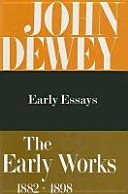Species Go Through the Same Stages as Individual Living Being
Just as in the animal and vegetable kingdoms, an individual comes into being, so to speak, grows, remains in being, declines and passes on, will it not be the same for entire species? If our faith did not teach us that animals left the Creator's hands just as they now appear and, if it were permitted to entertain the slightest doubt as to their beginning and their end, may not a philosopher, left to his own conjectures, suspect that, from time immemorial, animal life had its own constituent elements, scattered and intermingled with the general body of matter, and that it happened when these constituent elements came together because it was possible for them to do so; that the embryo formed from these elements went through innumerable arrangements and developments, successively acquiring movement, feeling, ideas, thought, reflection, consciousness, feelings, emotions, signs, gestures, sounds, articulate sounds, language, laws, arts and sciences; that millions of years passed between each of these developments, and there may be other developments or kinds of growth still to come of which we know nothing; that a stationary point either has been or will be reached; that the embryo either is, or will be, moving away from this point through a process of everlasting decay, during which its faculties will leave it in the same way as they arrived; that it will disappear for ever from nature-or rather, that it will continue to exist there, but in a form and with faculties very different from those it displays at this present point in time? Religion saves us from many deviations, and a good deal of work. Had religion not enlightened us on the origin of the world and the universal system of being, what a multitude of different hypotheses we would have been tempted to take as nature's secret! Since these hypotheses are all equally wrong, they would all have seemed almost equally plausible. The question of why anything exists is the most awkward that philosophy can raise- and Revelation alone provides the answer.
Notes:
They grow, change, and die.
Folksonomies: religion philosophy
Taxonomies:
/religion and spirituality (0.658492)
/art and entertainment/books and literature/science fiction (0.500321)
/science/social science/philosophy (0.196523)
Keywords:
constituent elements (0.999621 (neutral:0.000000)), slightest doubt (0.893088 (neutral:0.000000)), innumerable arrangements (0.867205 (neutral:0.000000)), Individual Living (0.865954 (neutral:0.000000)), vegetable kingdoms (0.865326 (neutral:0.000000)), everlasting decay (0.848537 (neutral:0.000000)), general body (0.840616 (neutral:0.000000)), entire species (0.832579 (neutral:0.000000)), different hypotheses (0.830948 (neutral:0.000000)), animal life (0.827609 (neutral:0.000000)), stationary point (0.816979 (neutral:0.000000)), good deal (0.814067 (positive:0.379218)), present point (0.805740 (neutral:0.000000)), developments (0.655346 (neutral:0.000000)), faculties (0.651372 (neutral:0.000000)), embryo (0.643849 (neutral:0.000000)), religion (0.617499 (neutral:0.000000)), time (0.609143 (neutral:0.000000)), declines (0.589065 (negative:-0.202723)), conjectures (0.580329 (neutral:0.000000)), gestures (0.579694 (neutral:0.000000)), deviations (0.575615 (neutral:0.000000)), feeling (0.570963 (neutral:0.000000)), millions (0.568631 (neutral:0.000000)), multitude (0.568241 (neutral:0.000000)), emotions (0.568150 (neutral:0.000000)), feelings (0.567788 (neutral:0.000000)), Stages (0.565516 (neutral:0.000000)), reflection (0.565051 (neutral:0.000000)), faith (0.563177 (neutral:0.000000))
Concepts:
Animal (0.950770): dbpedia | freebase | opencyc
Time (0.633480): dbpedia | freebase | opencyc
Existence (0.630244): dbpedia | freebase
Religion (0.620985): dbpedia | freebase | opencyc
Philosophy (0.617514): dbpedia | freebase | opencyc
Life (0.599963): dbpedia | freebase
Feeling (0.557424): dbpedia | freebase
Debut albums (0.497863): dbpedia





